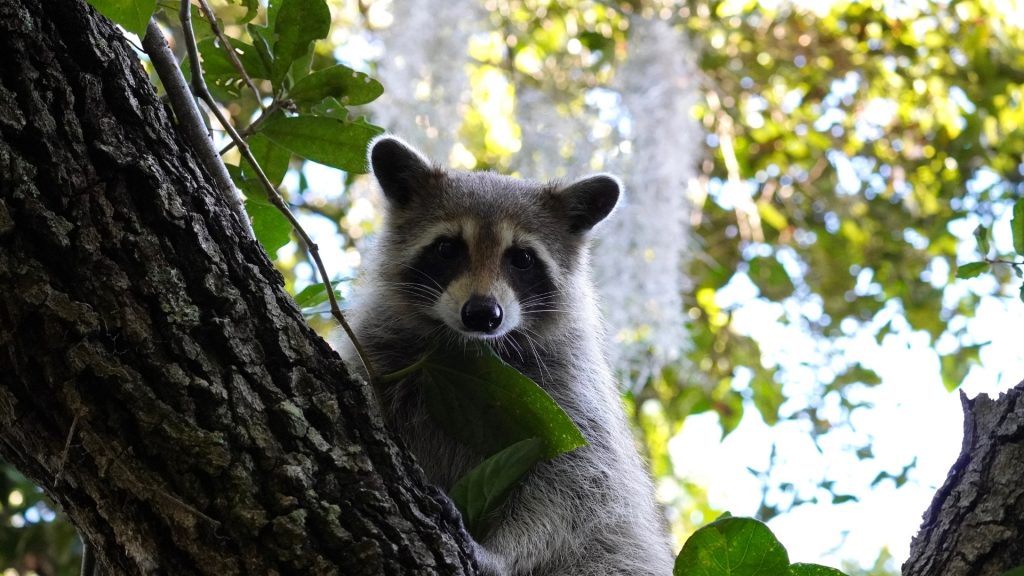The relationship between raccoons and cats can be a topic of concern for pet owners. As raccoons become more common in urban and suburban areas, many people wonder if their feline friends are at risk from these curious creatures. In this article, we will explore whether raccoons attack cats, the reasons behind such interactions, and how pet owners can protect their pets from potential threats.
Raccoons are known for their intelligence and adaptability, often scavenging for food in human environments. While they are generally not aggressive towards domestic animals, there are circumstances where a raccoon may perceive a cat as a threat or competition. Understanding these dynamics is crucial for ensuring the safety of both raccoons and cats in shared habitats.
In this comprehensive article, we will delve into the behavioral patterns of raccoons, their interactions with cats, and provide practical advice for pet owners. By the end, you'll have a better understanding of whether raccoons truly pose a threat to cats and how to keep your furry companions safe.
Table of Contents
- 1. Introduction to Raccoons and Cats
- 2. Raccoon Behavior and Characteristics
- 3. Common Interactions Between Raccoons and Cats
- 4. Reasons Raccoons May Attack Cats
- 5. How to Protect Your Cat from Raccoons
- 6. What to Do if Your Cat is Attacked
- 7. The Importance of Spaying/Neutering
- 8. Conclusion
1. Introduction to Raccoons and Cats
Raccoons (Procyon lotor) are medium-sized mammals native to North America. They are known for their distinctive black "mask" of fur around their eyes and their dexterous paws. Cats, on the other hand, are domesticated animals that have been companions to humans for thousands of years. While both species can coexist peacefully, the urban environment often leads to unexpected encounters.
2. Raccoon Behavior and Characteristics
Raccoons are nocturnal animals, meaning they are most active at night. They are omnivorous and will eat almost anything, from fruits and vegetables to human food waste. Their adaptability to urban environments makes them a common sight in neighborhoods, often rummaging through garbage cans.
Key characteristics of raccoons include:
- Highly intelligent, capable of problem-solving.
- Social animals that often live in groups.
- Curious nature, leading them to investigate new surroundings.
3. Common Interactions Between Raccoons and Cats
Interactions between raccoons and cats can vary widely. In many cases, they may simply ignore each other. However, there are instances where conflicts can arise, especially when food is involved.
3.1. Territorial Behavior
Both raccoons and cats can exhibit territorial behavior. If a raccoon perceives a cat as an intruder in its territory, it may react defensively. This is particularly true if the raccoon has young kits nearby.
3.2. Food Competition
Raccoons are opportunistic feeders, and if food is available, they may approach it aggressively. If a cat is feeding outdoors, it could attract the attention of a raccoon, leading to a potential confrontation.
4. Reasons Raccoons May Attack Cats
While raccoons are generally not known to attack cats, there are specific scenarios where such behavior may occur:
- Defensive Behavior: A raccoon may feel threatened by a cat, especially if it is protecting its young.
- Food Scarcity: In times of food shortage, raccoons may become more aggressive in competing for resources.
- Health Issues: A raccoon suffering from rabies or other diseases may exhibit erratic behavior, increasing the risk of an attack.
5. How to Protect Your Cat from Raccoons
To minimize the risk of confrontations between raccoons and cats, consider the following precautions:
- Keep food indoors to avoid attracting raccoons.
- Secure trash cans and compost bins.
- Supervise your cat when they are outside.
- Provide a safe space for your cat to retreat to if they encounter a raccoon.
6. What to Do if Your Cat is Attacked
If your cat is attacked by a raccoon, it's crucial to act quickly:
- Assess your cat’s injuries and take them to a veterinarian immediately.
- Report the incident to local animal control, especially if the raccoon appeared sick.
- Keep your cat indoors for a period to prevent further encounters.
7. The Importance of Spaying/Neutering
Spaying or neutering your cat can reduce aggressive behavior and territorial disputes, making it less likely for your cat to engage with raccoons or other animals. Additionally, it helps control the feline population, preventing feral cats from competing with raccoons for resources.
8. Conclusion
In summary, while raccoons can pose a threat to cats under certain circumstances, such instances are relatively rare. By understanding the behavior of both raccoons and cats, pet owners can take proactive measures to protect their feline companions. Always be vigilant and take steps to minimize potential conflicts. If you found this article helpful, please leave a comment, share it with fellow pet owners, or explore our other articles for more insights.
Thank you for reading! We hope to see you again for more informative content regarding pets and wildlife interactions.



